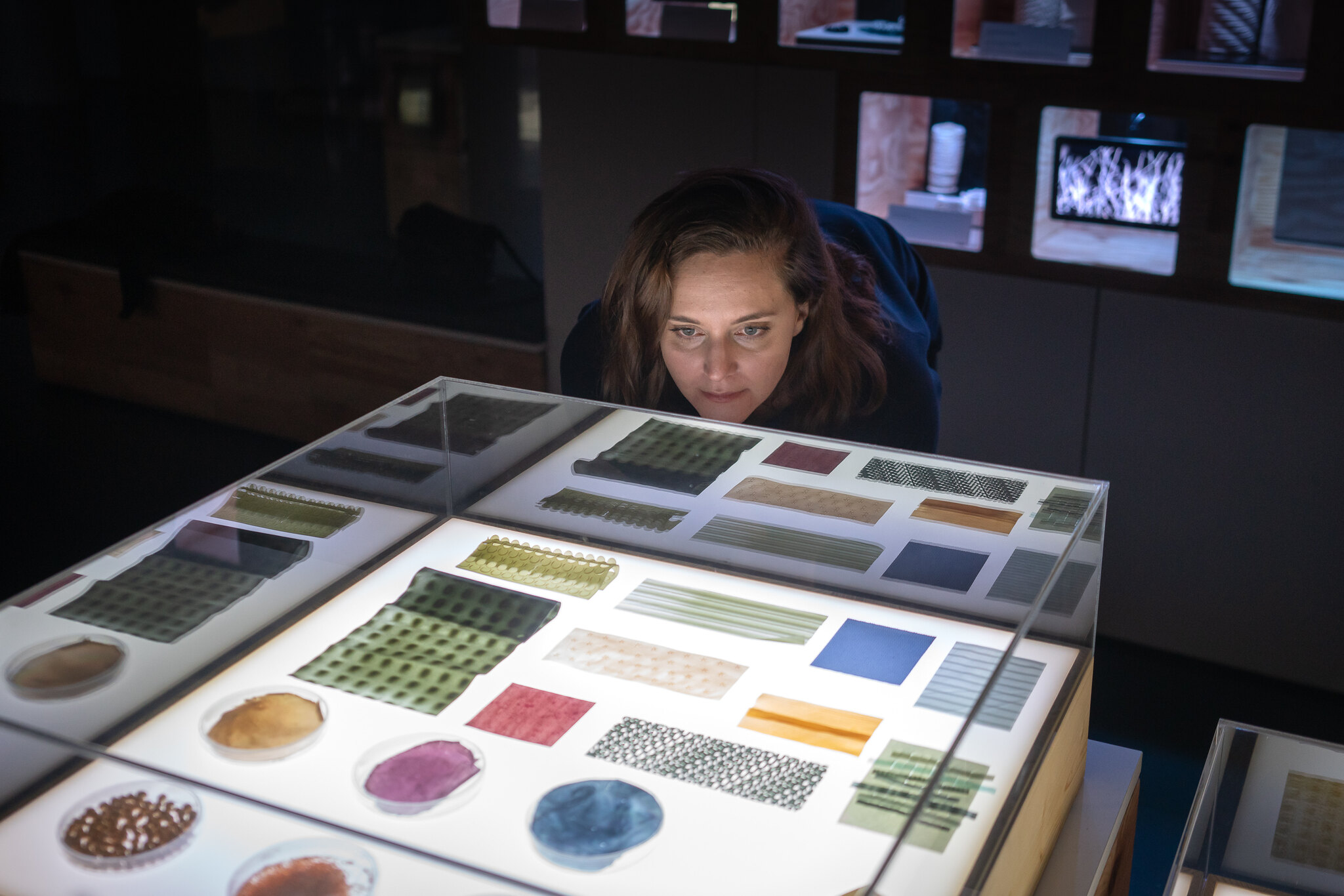APeel is an independently developed technique which aims to process biowaste into a soft yet robust leather-like material.
The concept was inspired by observing the life of conventional textiles. There is great potential to use bio-wastes and create brand-new biodegradable materials. Additionally, by recycling, redesigning and remanufacturing, we can create an ecosystem that promotes a sustainable lifestyle.
APeel uses banana and orange peels and soy-milk residues to combine with a natural binding agent as substrate. The resulting composite is fully biodegradable, zero-waste and easy to reuse after the re-cooking process. Moreover, the bio-material has a toughness, durability and water resistance similar to leather. It also preserves a fruity smell, refined texture and feels great to the touch.
The focus is not only practicability but also nature-friendly aesthetics that don’t just conserve but help restore the environment. The material provides new insights and outlooks for modern lifestyles that want to enjoy the products they use daily while respecting the environment.
As part of Regional S+T+ARTS Centers, a project of the European Commission’s S+T+ARTS initiative, Youyang Song participated in a one-week residency at the Ars Electronica Center in October 2020. Together with the Ars Electronica Center’s infotrainers, Song, a materials researcher, developed a workshop based on her project APeel. APeel is now also on display at Ars Electronica Labs
This project is co-funded by the European Commission’s DG CONNECT, in the framework of the Horizon 2020 programme of the European Union under the S+T+ARTS programme’s Regional S+T+ARTS Centers.
